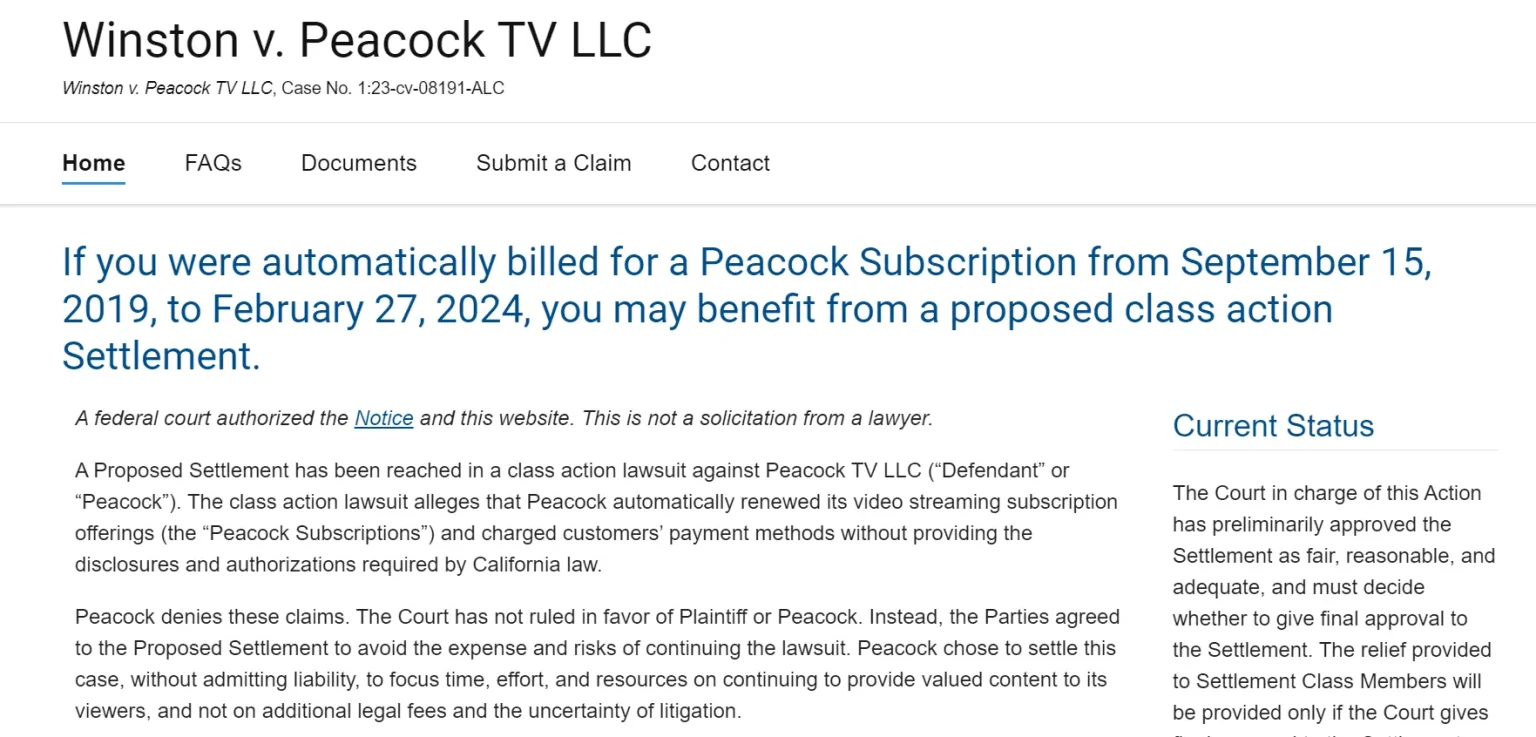If you’ve subscribed to Peacock TV or canceled your subscription recently, you might get a refund. This is due to a settlement in a lawsuit called Winston v. Peacock TV.
The case claims that Peacock renewed subscriptions without clearly letting customers know, which breaks California consumer laws.
This settlement could mean some cash for people affected. So, what is this settlement, and do you qualify to get paid? Let’s look into it.
What is the Winston v. Peacock TV Settlement?
The Winston v. Peacock TV lawsuit came up because people said Peacock renewed subscriptions without enough warning.
In California, companies must clearly tell customers about subscription renewals. The lawsuit claims that Peacock renewed subscriptions and charged customers without proper notice.
Peacock disagrees with these claims but chose to settle instead of fighting in court. This doesn’t mean Peacock admits fault; it just wants to avoid more legal costs.
The settlement fund has about $4 million to give eligible customers a payout.
Our Review
The settlement in the Winston v. Peacock TV case is real and approved by a federal court. In many cases, companies settle lawsuits to pay affected customers without admitting fault.
Here, Peacock has set aside money to repay people who may not have known about their automatic renewals.
Customers who paid for automatic renewals from September 15, 2019, to February 27, 2024, and have a California billing address may get around $18.33 as a refund.
While $18.33 may not seem like much, it’s extra money for an issue many didn’t notice.
If you think you qualify, submit a claim form by November 13, 2024.
You can file online or by mail, and once approved, payments will come by check or through digital options like PayPal or Venmo.
What to Do If You Get Scammed
Watch out for scams related to this settlement. Scammers may pretend to represent the settlement or offer to file claims for you for a fee.
The real information is available through official channels, and you don’t need to pay anyone to submit a claim.
If you suspect a scam, reach out to the settlement administrator or check court documents. Always confirm emails and calls with official sources before sharing personal information.
If you’ve been scammed, report it to your bank and file a complaint with the Federal Trade Commission (FTC) to help protect yourself and others.
Turbo Ripped Keto ACV Gummies are sold as a new way to lose weight. They say these gummies combine the benefits of the keto diet and apple cider vinegar (ACV).








